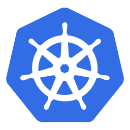GitHub Actions: working with Reusable Workflows
23 March 2024In the post GitHub Actions: Deploying Dev/Prod Environments with Terraform I’ve already touched on the topic of GitHub Actions Reusable Workflows and Composite Actions a bit, so it’s time to learn more about it. What needs to be done: currently in my project, we write Workflow files in each repository separately. However, since all processes… Read More »






